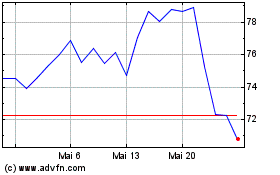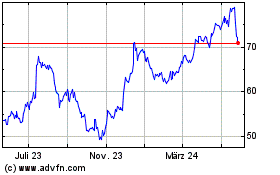Increased salary, 401(k) match and flexible
work arrangements are among the most impactful benefits
Workers’ financial health has improved slightly this year, and
401(k) participants are increasingly crediting their employers for
helping to manage financial stress, according to Charles Schwab’s
2024 401(k) Participant Study. The research finds 64% of workers
say their employers have taken action to help them manage financial
stress, compared to 52% who said the same last year.
Actions employers took to mitigate
financial stress
Increased pay
39%
Offered flexible work arrangements
19%
Increased 401(k) match
18%
Provided access to financial
wellness/education resources
15%
Provided additional bonus
14%
More workers report feeling very good about their financial
health (24%) compared to last year (20%), but many continue to feel
stressed. About half of workers say their financial health has not
changed and one in five say it has worsened. Gen Z (37%) and
Millennials (35%) are more likely than Gen X (28%) and Boomers
(21%) to say their financial health has improved.
“While the markets have generally performed well this year,
inflation and economic conditions have continued to put pressure on
workers’ finances at elevated levels,” said Lee McAdoo, Managing
Director of Schwab Retirement Plan Services. “In the face of
external economic factors, employers are supporting their employees
with a combination of direct financial assistance and accompanying
resources to help them manage financial stress and overall
well-being.”
Flexible work still a priority
More than four years since the start of the COVID-19 pandemic,
flexible work arrangements remain important to the vast majority of
workers with 401(k) plans and have become more attractive than a
salary raise for many. Flexible work arrangements are important to
84% of workers and 57% say they would be willing to forgo a
percentage of a salary increase for more autonomy over when and
where they do their job.
The percentage of Boomers who are willing to give up a salary
increase for a more flexible work arrangement jumped from 29% to
38%. Gen Z (75%) and Millennials (71%) continue to be the most
willing to make this trade off. Flexible work arrangements are
slightly more important to women (87%) than men (82%), but fewer
women would forgo a raise to secure the perk.
Women are more likely to say that the ability to work from home
(36%) and have flexibility in work hours and location (45%) are
must-have benefits compared to the men surveyed. The ability to
work from home is also more of a must-have for Millennials (36%)
than Gen X (29%), Gen Z (26%), and Boomers (25%). Gen Z is the most
likely to view flexibility in work hours and location as a
must-have (52%), followed by Millennials (46%), Gen X (39%), and
Boomers (34%).
The potential of SECURE 2.0
Nearly one in three workers (32%) would like help understanding
how new regulatory and legislative changes, like the SECURE 2.0
Act, affect their retirement plan.
As employers have begun adopting SECURE 2.0 provisions, more
workers have become attuned to the benefits that could help them
manage their finances. The most pronounced interest is in the
federal government’s plan to make matching contributions to
workers’ retirement accounts based on income.
SECURE 2.0 Act Provisions
Aware
Would like to learn
more
Government matching contribution to IRA or
401(k)
37%
53%
Easier 401(k) withdrawal for emergency
expenses
50%
40%
Employer contributions as Roth
47%
39%
Set up emergency savings account at
work
37%
39%
Increased contribution maximum for ages
60-63
49%
34%
“As employers navigate changes they can make within their
retirement plans, it’s important to evaluate which provisions could
add the most value for their employees,” said Marci Stewart,
Director of Client Experience at Schwab Workplace Financial
Services. “It’s still early days for SECURE 2.0 adoption as
employers consider the potential it holds to build on the support
they are offering employees across a range of financial needs.”
About the survey
This online survey of 1,000 U.S. 401(k) plan participants was
conducted by Logica Research between April 17 and May 3, 2024.
Survey respondents were actively employed by companies with at
least 25 employees, were 401(k) plan participants and were 21-70
years old. In order to analyze Gen Z results against other
generations, an additional 100 plan participants aged 21 to 27
completed the survey. Survey respondents include participants
served by approximately 15 different retirement plan providers. All
data is self-reported by study participants and is not verified or
validated. Detailed results can be found here.
About Charles Schwab
At Charles Schwab, we believe in the power of investing to help
individuals create a better tomorrow. We have a history of
challenging the status quo in our industry, innovating in ways that
benefit investors and the advisors and employers who serve them,
and championing our clients’ goals with passion and integrity.
More information is available at www.aboutschwab.com. Follow us
on X, Facebook, YouTube and LinkedIn.
Disclosures
Workplace Financial Services is a business enterprise which
offers products and services through Schwab Retirement Plan
Services, Inc.; Schwab Stock Plan Services; and Designated
Brokerage Services. Schwab Retirement Plan Services, Inc., provides
recordkeeping and related services with respect to retirement
plans. Schwab Stock Plan Services is a division of Charles Schwab
& Co., Inc. providing equity compensation plan services and
brokerage solutions for corporate clients. Schwab Designated
Brokerage Services (DBS), a division of Charles Schwab & Co.,
Inc., provides technology solutions for corporate clients with
regulatory requirements to monitor employee security transactions.
Schwab Retirement Plan Services, Inc., and Charles Schwab &
Co., Inc. (“Schwab”) (Member SIPC) are separate but affiliated
entities, and each is a subsidiary of The Charles Schwab
Corporation.
1024-YS4G
View source
version on businesswire.com: https://www.businesswire.com/news/home/20241023542332/en/
Mike Peterson Charles Schwab 330-908-4334
mike.peterson@schwab.com
Carly Taylor The Neibart Group 973-618-6993
SchwabRPS@neibartgroup.com
Charles Schwab (NYSE:SCHW)
Historical Stock Chart
Von Nov 2024 bis Dez 2024

Charles Schwab (NYSE:SCHW)
Historical Stock Chart
Von Dez 2023 bis Dez 2024
